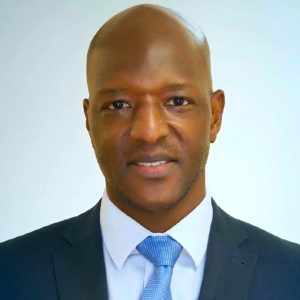This is a story about investing in people and taking innovative and bold approaches to team development.
Purpose
In 2022, the Leadership Centre began working with Richmond and Wandsworth Councils’ Public Health Division on a developmental journey aimed to maximise their impact and effectiveness as a team operating within an ever-changing context and build up resilience following the significant COVID-19 pandemic effort.

Shannon Katiyo
The programme was co-designed with the team and took the form of four Awaydays spread over the course of a year, which included peer coaching and ongoing work between sessions. Shannon Katiyo, Director of Public Health who leads the division, explained why this approach appealed to him; “We’ve been in the process of building the team following a period of organisational change and we had new people join in the last couple of years. With the emergence of hybrid working following the pandemic, I wanted to do something that really brought us together and gave us the time and space away from our normal working environment, to think differently and to reflect on how we work together to deal with the longer-term public health challenges we face.
Design process
“For me, the Leadership Centre was a great fit, because they didn’t come with a fixed model, that they were set on shoehorning into the sessions. It was an iterative process of developing an approach together, tailoring it to the team and catching up regularly to build the feedback from the previous session into the next one.
Our facilitators had this brilliant ability to record things contemporaneously and ensure that all the learning, the feedback and the discussions were captured, presented visually, and were made available for us to assess and re-develop our approach as needed. It was much more involved than I had envisaged, but it was a great way of going about it because the feedback we received just got better and better over time, the more we co-designed with the group and responded to their experience.”
The sessions and themes
The four sessions were delivered in community settings across Richmond and Wandsworth in a deliberate effort to move the team into a different space, encouraging a break from the day to day, a shift in mindset and an opportunity to connect more physically with the communities they work with. Around thirty-five staff took part in the programme. Shannon described a particularly impactful first session with the team; “Some members of the team have been with us for quite a long time, others were new and some joined us on an interim basis during the pandemic. It was interesting how that dynamic played out in our first session because we were encouraged to look at a reflective road map of our past, present and future and how we thought of the team at each stage. Those representing the past had to give a message to those in the present about how they view the current situation and vice versa. It was a profound session which allowed people to think quite differently about our team and our journey together.”
Throughout the sessions, the teams gathered around four different themes which were issues that they had expressed interest in spending time working on. These were:
- how to increase their visibility as a team, to showcase the excellent work, public health services and outcomes for residents
- how to enhance effective ways of working including matrix and hybrid working
- how to improve and increase influence when operating in a complex and a challenging environment across two different local authorities, and at times with no direct authority over those we wish to influence
- how to increase resilience so that the team is better able to cope with future challenges or significant public health events like the COVID-19 pandemic
Tools and techniques
Techniques and approaches were introduced to help the team look at these issues differently which were carefully selected based on how the conversations developed. Shannon explained the power of learning about framing and reframing: “It came up when we were talking about influencing and working beyond our authority. We were introduced to the concept of a ‘sphere of influence’ and we mapped our residents, council colleagues, NHS etc onto the sphere. We always tend to think of those spheres when we think about our actions and what we want to change. The ‘framing and reframing’ was helpful because we are always working towards common goals and trying to influence better health outcomes. Reframing helped us to ’walk in the shoes of our partners and stakeholders. We started to think more clearly about how certain groups may perceive public health and were then able to think about how we might explain or promote something differently in a way which would make sense for those groups. The team found immediate applicability for that technique – they haven’t stopped using it. When we come up against an obstacle, you can almost guarantee that someone will say ‘well, let’s reframe that’ and they begin to unpick issues which take them to the next level. It’s almost become a team mantra!
“Leading on from that, we started to consider the value of ‘storytelling’ through case studies and its importance in public health. It’s vital that we can help people connect with preventative services that help people to stay happy and healthy, and the benefits not only to individuals but to society. We’ve already made a commitment to building this into our work programme more substantially in the future – placing ourselves in the shoes of others to tell the stories which have the greatest impact on those we want to reach.”
Learning vehicles ‘topics’
Within the sessions, the group were introduced to ‘learning vehicles’ – real topics that we are working on daily, which would help to embed the learning and avoid the concepts appearing abstract. Topics included tackling health in relation to climate change, the visibility of our work on dementia, leadership in an emergency response, listening to and working with communities, and tackling obesity. The groups took away exercises to coalesce around between sessions which helped cross-team development to continue throughout the year.
Outcomes
Shannon says he has noticed some positive changes across the team: “I think the team feel more in tune with what others are doing and working proactively across the organisation and with partners. Another observation was the realisation by some people who might not have thought of themselves as leaders realising that they are leaders in their areas of work and that you don’t need to be in a senior or management position to be a leader. I’m always blown away by the team’s creativity and innovation, which has led to them producing some fantastic work.
The programme was designed to flex and adapt to the needs of the group – not just at the outset – but as an ongoing feature of the work throughout the year. Shannon described it as a brave investment in people and in their leadership – but one that was well worth it: “It can be a slight worry entering into a year-long process with so much flexibility that you don’t really know where you will end up. But that was one of the most defining and successful aspects of what we did. It also modelled to the team what we can achieve when we embrace something different. I think the outcome showed itself in terms of the value the team placed on that time together.
Recommendation
“I would 110% recommend this type of development to any team wanting to work on their team dynamics whilst working on the issues that really matter in their work. The learning is multi-dimensional and tailoring it to your own operating context is a very powerful way of learning together. Having facilitators who can expertly guide you towards the technique or approach which will help you in a particular moment is fantastic. It is a brave step to release your grasp on where you think the sessions will take you, but it has certainly been a very rewarding journey for our team and for me as their director.”
